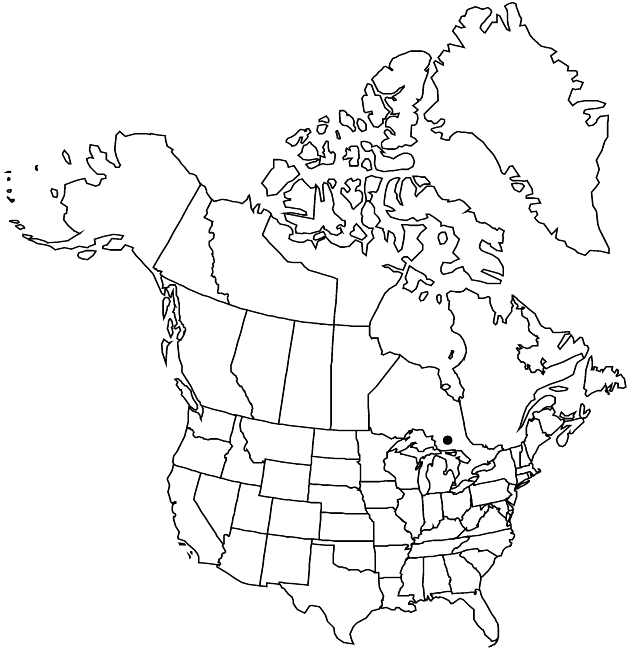Sonchus palustris
Sp. Pl. 2: 793. 1753.
Perennials, 100–150 (–350+) cm. Stem-bases hard, sometimes ± woody. Leaves: blades of mid cauline oblong to lanceolate or linear, 15–20+ × 2–3 (–8+) cm, bases auriculate, auricles lanceolate to linear, ± straight, acute, margins sometimes pinnately lobed, lobes ± deltate to lanceolate or linear (not constricted at bases), terminals usually larger than laterals, entire or dentate (teeth not notably prickly). Peduncles usually setose to stipitate-glandular. Involucres 9–13+ mm. Phyllaries sparsely to densely setose to stipitate-glandular. Corollas: ligules ± equaling tubes. Cypselae stramineous, oblong to ellipsoid, 3.5–4 mm, ribs 4–5 on each face, faces transversely rugulose or tuberculate across and between ribs; pappi 7–9 mm. 2n = 18.
Phenology: Flowering Jul–Sep.
Habitat: Disturbed, marshy sites, wet roadside ditches on peaty sand, railroad ditches, wet fields
Elevation: 0–100 m
Distribution

Introduced; Ont., Europe
Discussion
Sonchus palustris was found in Ontario by D. F. Brunton and C. W. Crompton (1993) in the Ottawa area, and by J. K. Morton and J. M. Venn (1995) in the Waterloo region.
The plants in the flora area are subsp. palustris. Subspecies sosnowskyi (Schchian) Boulos, from a single location in the southern Caucasus of eastern Europe, differs primarily in having glabrous stems, peduncles, and heads.
Selected References
None.
Lower Taxa
"fine" is not a number.